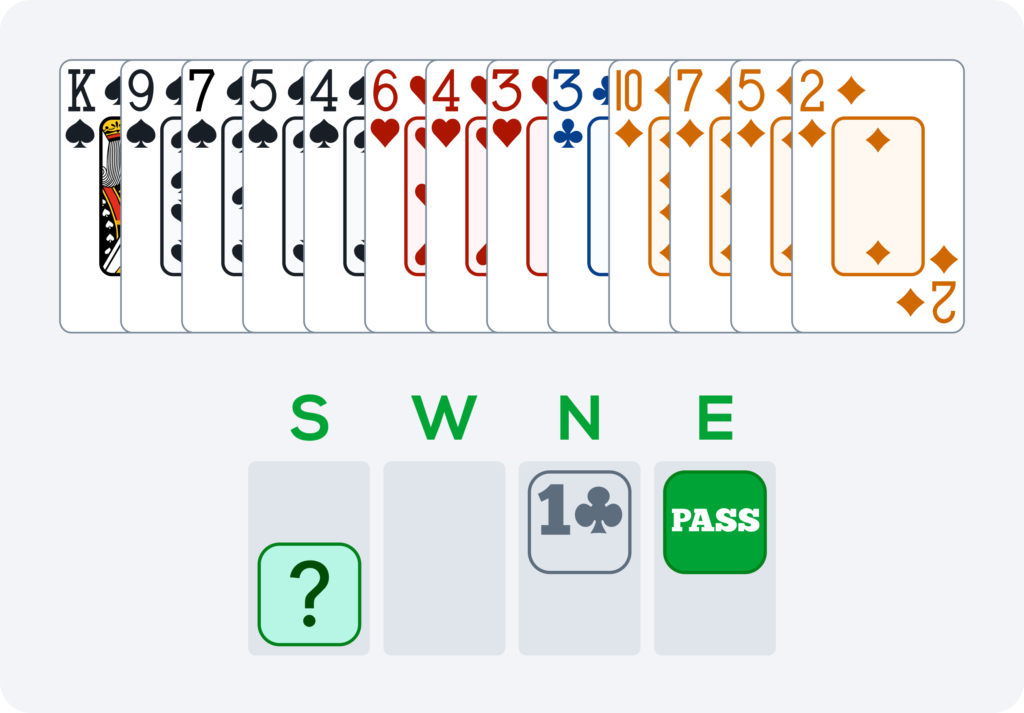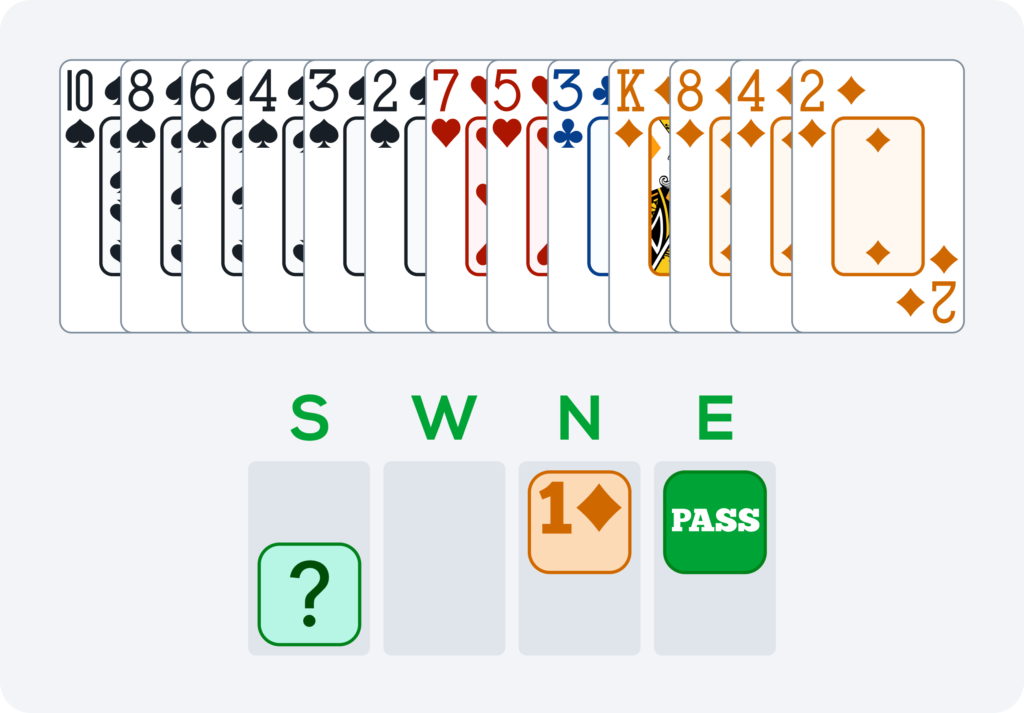
Respond or not to the opening bid with a weak hand

We will look at a problem that has existed since the dawn of time… of bridge: Should you respond to an opening at the one-level with a weak or even very weak hand? Even if in this article we will look at the main principles on which everybody agrees more or less, you must know that it is also a matter of style to respond (or not) to an opening bid with very weak hands.
Summary
1. Bidding a new suit at the one-level
Let’s start by explaining why it is useful to respond to an opening at the one-level, even with very weak hands. Remember that these ambiguous openings can be very strong: An opening bid at the one-level can go up to 22HCP. With strong two-suited hands, you should avoid opening with a strong 2♣️. Therefore, opener can have hands with a very high potential if he finds a fit in one of his two suits. That’s why we show a fit with weak hands (6 points +, distribution included), we respond 1NT from 5-6 points on and we bid a new suit at the one-level with at least 4-5 HCP, especially with an Ace.
But be aware that the desire not to miss out on bidding and making a game contact is not the only reason for bidding with weak hands. You can absolutely choose to bid with a weak hand to make your opponents’ life harder ! either with a preemptive bid or with a simple 1NT.
In any case, if you decide to bid when you don’t have a lot of points, you need to be as careful as possible not to encourage your partner too much. Let’s look at the situa-tions in which you should answer with weak hands.
1. Bidding a new suit at the one-level
This can be done automatically when you have 5 HCP or more. We are therefore going to focus on slightly weaker hands. What reasons could encourage you to bid with less than the required 5 HCP?
There are three of them:
- Play a better contract than the one you would play if you passed in reply to the opening bid. For example, you hold a sin-gleton in the suit of the opening bid and five cards in a major.
- Play a game contract because opposite you find a fit and a strong hand when your hand although weak, is very unbalanced, which gives it good potential.
- Occupy the land. It’s harder for your LHO to bid in the sandwich position after 1♣️-Pass-1♠️ then in the pass-out position after 1♣️-Pass-Pass.
Hand 1 :

Hand 2 :

With hand 1, you do not want to pass over the opening bid of 1♣️. You could go down in 1Club when a part-score or even game in Spades could be lay-down if North has the following hand: ♠️AQ82 ♥️AKQ ♦️A3 ♣️9864.
With hand 2, you can make game with even less points if you find a double fit. Here, to make 4 Spades (even 5), it is enough to find North with: ♠️AK75 ♥️4 ♦️AQ953 ♣️864.
Over an opening bid of 1♣️ it happens that you don’t have any hope of winning a game but you don’t want to pass because you are short in Clubs. With Club shortness and four cards in both majors, it is more reasonable to bid 1♦️. For example, with the following hand: ♠️Q875 ♥️J974 ♦️J953 ♣️4, if you respond 1♥️ your partner could propel you to game if he has a strong hand with a Heart fit. However, you neither want to pass and play 1 Club, nor to end up in a game contract. When you bid 1♦️, your partner will often rebid a major on the one-level, even with 18 HCP, and then you can pass and be in a more reasonable contract.
2. Hands with a fit in the major
You need a Funbridge Premium+ subscription to keep reading.
To read parts 2 and 3 of this article by Wilfried Libbrecht, please log in to the Funbridge blog with a valid Premium+ account.




Very interesting,, tks
Sehr lehrreich
Very good
Good to point out that the fit is very important – point count is only one aspect of bidding.
Verry good
Food for thought
Appreciate the article as it gives depth to an tricky situation.
I’ve often wondered about the pros and cons of responding with less than 6 HCP and in what situation. So this was helpful. Thanks!
Dette er nyttig viden. Tak.